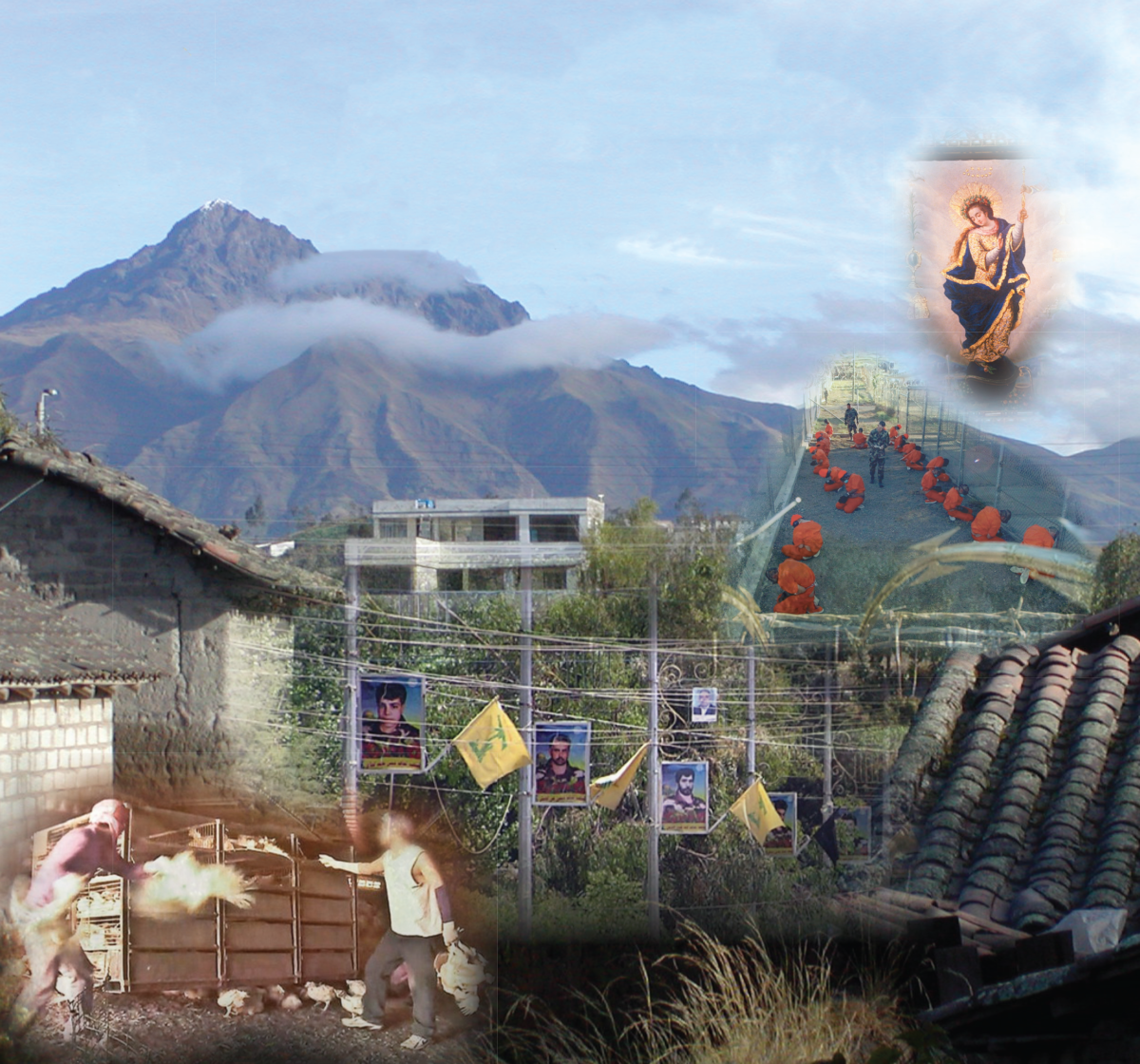[Editor’s note: The following two poems are excerpted with the author’s permission from Jacobo, the Turko; a novel in verses, by Phillip Bannowsky. You can learn more about Phillip in the About the Author bio below.
The narrative is told experimentally through a series of miscellaneous ephemera and verses. The protagonist, Jacobo Bitar, is an Ecuadorian man of Lebanonese descent who travels to Rehoboth Beach, Delaware on a J-1 Visa in hopes of restaurant work for the summer tourist season. He ends up working on a chicken processing line in Sussex County. Jacobo is deported by ICE to Lebanon (where he’s never lived). He is eventually captured by U.S. Forces in the Middle East and is sent first to Bagram AFB, Afghanistan, and then Guantanamo Bay Prison, Cuba.
More information about the book, its creator and how you can buy it (not at Amazon) can be found here.]
Jacobo, Not Home Now, Meets Leila
(Previously published in Meat for Tea: the Valley Review.)
If you lived here
You would be home now
—sign entering Bridgeville, Delaware.
She lived with Uncle Pops,
related to him by some skein of obligation:
kinship, chance, desperation.
Theirs was an orphan street discontinued
beyond their one block
by a century of municipal inattention,
which pleased Uncle Pops,
for here was where quote don’t too many people know your business,
his business being marijuana and painting pictures
from his third-floor studio of neighbors
changing tires, tending gardens, or
homesteading behind plywood
and balloons of graffiti:
Snitches get stitches.
I’d spent the day of my rescue showing Uncle Pops
how I could hack marijuana with a machete
and then we’d driven
to Bridgeville where he showed me
that sign and laughed:
If you lived here
You would be home now.
I thought he meant to dump me
but he drove on, and the farther we drove north,
and the more Uncle Pops lectured on towns that memorialized
old world cities, a rejected king, a martyred president,
and settlers who stole
their homes from the Lenni-Lenape,
the more I felt Uncle Pop’s wheels spin me into his skein.
Then I met Leila, who made me feel the tug
of a terrifying attraction,
too far to fly the spark of satisfaction;
As once on high Imbabura,
trekking a path I thought was homeward,
with anticipation rushing me onward as I rounded
an enormous stone, but came upon a cliff edge,
with my village far below,
a tiny wrinkle drawing me into flight,
So I yearned for Leila,
but she was eyeing me the way the Lenni-Lenape
must have eyed those who came ashore with
helmets and horses, even though
I was half-Indian, myself.
Ronaldo
(Previously published in armarólla.)
Often, we met at Mr. Ali Beheshti’s
for a ride to his laundry, where Hamoudi and I worked,
so far only in winter months, when the heat from the dryers
was tempered by Mediterranean breezes, alhamdulillah,
praise God, as the Muslims had taught me to say
in the event of anything short of haram, or God forbid,
which the laundry was almost,
now that March had begun prickling us
with the gentlest–alhamdulillah–hints of summer.
Mr. Beheshti’s home had bright marble tables,
chairs carved from imported wood,
and ochre carpets from Iran.
In one corner was a little shrine
to his brother-in-law-in-the-Resistance,
as Lebanese call it:
three shelves of dog tags, ribbons, medals,
gazelle and horse figurines,
inlaid boxes, a golden sword embossed
with curlicues of Arabic calligraphy,
and photos of bearded imams,
one with the brother-in-law-in-the Resistance,
who held a Hezbollah flag:
summer yellow with AK-47, green, on high.
Mr. Beheshti’s clamshell sounded an electronic Baladi:
doom-doom—TAK-doom—TAK!
“Alhamdulillah,” I heard,
a short cut for “I’m fine.”
Later, Mr. Beheshti gave us the play-by-play
for the call, which was from
the brother-in-law-in-the-Resistance,
who wanted to discuss fútbol,
the match between Russia and Brazil,
and everyone’s hero, Ronaldo, the great Brazilian striker.
It was a friendly match;
the big battle would come
in the World Cup this summer, so the important thing,
was that no one get injured, insha’Allah.
The cold was in Russia’s favor,
but, fifteen minutes into the match,
Brazil’s captain Roberto Carlos crossed the Russian line
fifty meters from the goal, prepared to pass
to Ronado, who was waiting behind a four-man bulwark,
but Carlos, faking it, tapped the ball two steps ahead
and—surprise!—booted straight through
for a goooooooooooalhamdulillah!
but not before Ronaldo threw out his arm,
and almost committed haram
when the ball hit him on the way.
W-Allah! The path is narrow, Ali.
One-zero to the end, Brazil played hard defense with substitutes,
because the important thing
was that none should fall
before the big battle to come.
The sun rose twice on the cooling sea,
its gleams and shadows crossfading with the hours
through shine, shadow, red ochre, and night,
but—haram—the brother-in-law-in-the-Resistance
would not be around
for the big battle to come.

